Interview with Jaroslaw Wenger, volunteer of the 14th Waffen Grenadier Division of the SS (1st Galician), England, 1988.

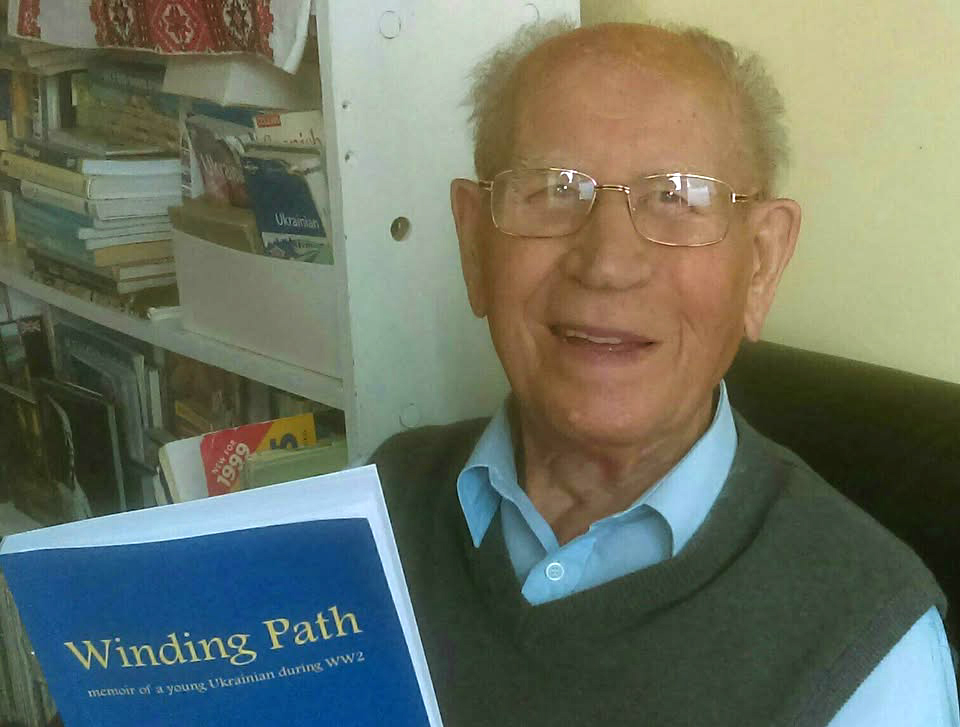
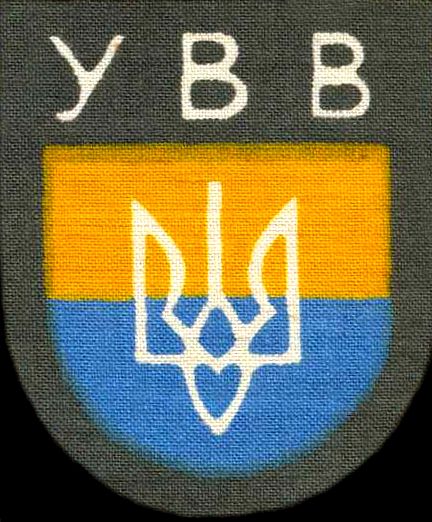

Interview with Jaroslaw Wenger, volunteer of the 14th Waffen Grenadier Division of the SS (1st Galician), England, 1988.




Jaroslaw: I was a Ukrainian born of humble origins, but had a very deep hatred of the policies of Stalin. To tell you of my reasons and experiences, I have to tell you a bit of history. Ukraine was mostly opposed to the Bolsheviks since most of the people were farmers and tied to the land, and deeply religious. The Bolsheviks wanted the fruits of this labor tightly under their control, they took our work and then gave it away as they saw fit. All while persecuting our faith. This went against our values, and we hated that the Bolsheviks were very anti-Christian. These early Marxists were heavily Jewish, which we can talk about later. They sent bands into the Ukraine and forced people to move into collective farms, so they could be watched, and forced to produce. The people hated this, and some Jewish enforcers were quite cruel, killing anyone who opposed them.
Most Ukrainians sought ways to resist by peaceful means. This caused Stalin's ire, and he unleashed a wave of terror on Ukraine that culminated in the forced starvation of several million. This started by the communist party confiscating farm tractors and tools and sending them to Russia, this left our farmers with nothing to plant with. Rivers were dammed and water withheld so crops could not grow. From 1932 to 1933, millions became sick due to not enough food and the government did nothing to help, and did everything to make things worse. It was a purposeful famine made to break the Ukrainian independence movement and punish us for resisting the Bolsheviks. By the time it was over, millions had died and more were left with lasting defects. This caused a deep-seated hatred of the Bolsheviks, so that when the Germans declared war, we welcomed them as our liberators.
I was just a teen when German forces arrived in my town. Citizens had been told to evacuate, but most all refused, the NKVD shot many for not leaving with the army. This type of behavior caused some riots before the arrival of the Germans; many Jews who had helped the Bolsheviks and who were slow to leave were taken out and beaten. The Germans put a stop to this when they arrived. The Jews who survived were grateful to the Germans for saving them, what a sight it was to see them cling to the men they would later accuse of crimes. I remember that there were mobs of people who still went after them; even their families were not safe. Ukrainians knew many Jews aided the Bolsheviks in rounding up Christians and having them killed or sent away. This was payback.
Once the Germans restored order, they immediately went about rebuilding infrastructure all across the Ukraine, there was much damage to repair as Stalin's army practiced scorched earth. The Germans also started recruiting for many positions that included going to work in factories, which paid handsomely. I saw the labor service, and the youth service come into our area and work on rebuilding what they could. I was very impressed by this as they made it clear they were not conquerors, but allies that came to give us a better life. Priests were a common sight again. Something that caught my attention was in 1942, the Waffen-SS had put up posters asking volunteers to help fight the Bolsheviks, and many men were joining up. The Germans had done a lot to create trust and allies in the Ukraine, and the people rose up to aid our allies as best we could. I was one of millions. I applied to the SS and was accepted, being sent to basic training. Our whole town came to see us off, and our priests blessed us. Something not seen during the Bolshevik years.
[Above: Holodomor. Or 'to kill by starvation'. Also known as the Terror-Famine or Terror-Genocide. The communist monsters of the Soviet government murdered up to TWELVE million Ukrainian people from 1932 to 1933. This is only a small part of the tens of millions of men, women and children murdered by the communists who had taken over Russia. This is the same Russia that the United States kept alive with endless money and supplies which were sent to Russia while Germany was nearly victorious. The United States aided and abeted this monster regime which had taken over Russia with bloody force and murdered Russia's royal family in cold blood.]
Jaroslaw: No, to their credit, the Germans used Poles or Ukrainians to train us. Our training was like that of any other army. Early to bed, early to rise, lots of physical exercise, and field training. We had various ethnicities who oversaw the training; it was quite a mixture to see. Poles, Ukrainians, Germans, Slovaks, and Russians all together training to fight the Soviets. The language was a problem, so we had to learn German military phrases, but mostly spoke our native tongues. We were asked to put all animosity aside as we were on the same side working for the defeat of a hated political idea. It was not always smooth as I saw some fights break out, but we made it work. We trained on German weapons mostly, but some came from the defeated nations. Our division had many units, tank hunting, pioneer, medical, infantry, and artillery.
Training was done as in any other army. We would get up at the break of dawn, hold exercises and run. We would come back to the barracks and clean for inspection, then shower, and then attend class for weapons training. There was very little marching and parade practice, we mostly learned how to fight and survive. There was very little political talk as well; we knew why we were there. We went to Sunday services and had the day off to relax.
What was your action like against the Soviet army?
Jaroslaw: By the time we made it to the front as a division the tide was starting to turn against the Germans. We were kept in the Ukraine, as the Germans allowed us to fight to defend our homes and families. Some of our first actions were against bands of partisans who were loyal to the Bolsheviks. They were quite nasty to fight, as they preyed on the Ukrainian people, sometimes they even wore our uniforms they captured and committed crimes, and so the people would think it was Germans.
This was an effective tactic as it confused the people. We came across such a group who had a collection of captured uniforms, they claimed they only used them for warmth, but we knew better. A village had been attacked a week before, and witnesses said it was Germans who shot down the men. As we listened, we thought it should have been obvious to them it was a ruse, as the village was friendly to us, so why would we attack them? It is a very old trick, and I believe it happened more than once.
This was the nature of our early actions, and it taught us young recruits combat experience. I must tell you that when we captured these scoundrels they were turned over to the police. Many of which were Ukrainian, and the fate of those who committed these subterfuges and crimes was not pleasant. When captured, partisans went to a prison camp, concentration camp, or were executed if their crime was severe. Mercy was shown to those who deserved it.
Fighting the red army was another story; they were soldiers who had been taught their motherland was at risk. They were well-armed, but not well-trained and their strength was their numbers. When the odds were even, or even if they outnumbered us slightly, we came out on top. Our training was better, and we had better command of the battlefield. What hurt us was that we had too few supplies. Our artillery only had so many rounds a week to fire. The enemy had what seemed like unlimited supplies to throw against us. We had the manpower all the way till the end, just not enough tools to fight with.
They had been taught the Germans were there to kill and destroy; we tried to convince many this was not true. We sent flyers back with the prisoners for them to come join us. The stories the Soviets tell of mass killings of prisoners are lies. We welcomed many new recruits in our division, and there were many units of the German armed forces formed from former prisoners. Stalin ordered any person who fought for the Germans killed, and then blamed the Germans. Much like Katyn, where brave Polish patriots were murdered by Bolshevik soldiers, yet the blame is shifted to the Germans.
Can you talk about the accusations from Simon Wiesenthal that your division killed Jews and others in round ups?
Jaroslaw: I do not recall this accusation. We were not accused of war crimes, which is why I was allowed to come to the UK. We were an independent combat formation of the Waffen-SS, and fought as soldiers. The only war crimes I saw were those committed by the partisans and Soviets. Just because our enemies say something happened does not make it true, truth is the first casualty in war.
We had no hatred of the Jews, to us they were an oddity that settled in areas of our country and stayed to themselves. It is true many Jews sided with the Bolsheviks during the revolution and were responsible for the roundup and killings of Christians, this caused hatred in many. The Germans put in place the plan, which locals approved of and helped with, of concentrating them so they could be watched.
The interaction with Jews in the east was uneventful, they stayed to themselves, and we ignored them. Problems only happened in the areas that were known for pro-Bolshevik groups and those who worked with them to persecute those opposed to Bolshevism. To my surprise, some Jews wanted nothing to do with the ideology, and aided us. Some worked with militias to fight the partisans alongside German units. I see the Jews as no different from any other people affected by the war. Some fought on a side, others stayed on the fence and were left alone. Therefore, I do not believe they are deserving of a special status. Some suffered indeed, but so did many other peoples, especially Ukrainians.
Something peculiar perhaps, was whenever we came to an area with a large numbers of Jews, we were always welcomed, sometimes even fed. All the nonsense I hear today must be from another war, because the war I fought was very different. These stories of persecutions on a mass scale, mass killings, and roving special groups just to kill Jews are a falsehood unparalleled in history.
Now, someone who committed a crime against us, for example sniping at us as a civilian, sabotage, or attacks, they were punished as the law allowed. They were not singled out because of their race or ethnicity. The accusations that the Waffen-SS was bent on rounding up and killing civilians are lies. We did not have the time or reason to do this, our enemies spread these tales to hide their crimes.
I must say again, do not confuse punishing terrorists and killers as a war crime. Every nation who has engaged in war has had to face the same problems of spies and saboteurs. When caught, they are usually executed, and it is the punishment they expect. Sometimes their families are used as hostages to ensure safe return of important persons. The partisan war was no different, they knew what they were getting into, and they were very cruel while waging a war that the Allies encouraged.
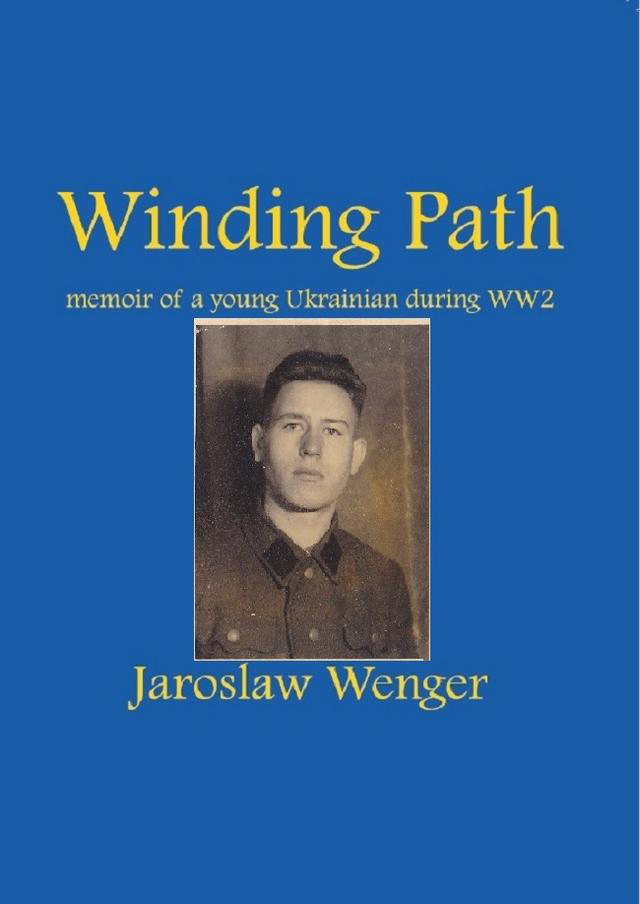
[Above: Jaroslaw wrote a book about his time in WWII, although it is very hard to find and is out of print.]
Did the Germans treat you differently because you were Ukrainian?
Jaroslaw: No, not at all. I did not even see that stuffy Prussian officer class who believed in their superiority. To give you an example, after our training was complete, we were given leave. The Germans paid to allow many of our men to go to Paris. They told tales of the naked women in cabarets, the bars and dance clubs. We were all jealous that we stayed close to home. Many went to the beaches in Odessa with heir sweethearts and families.
Our company officer was given a camera as a gift for completion of his training. He came back with many photos of pretty French girls who looked very desirable, but still not as good as Ukrainian women. When we were in Germany the people were very kind, and we saw nothing of hatred or animosity. I could tell some of the old ones looked at us oddly, due to our flag on our uniforms, but we had no problems. We were treated as comrades in arms, our officials always had dinner parties for us when they could, and NSDAP officials would come to speak. They thanked us for joining the great crusade, and spoke about what an honor it was to have us as allies.
You mentioned that Brody [The Battle of Brody took place from July 13-22, 1944. It was a significant and disastrous battle fought by the 14th Waffen-SS Galicia Division] being surrounded was your biggest battle, what was it like?
Jaroslaw: My division was part of the defensive battles of 1944 and 1945. In the summer the Soviets launched a big offensive against the whole front, and rolled it back. We were able to stabilize the front, but only for a short time. During the Soviet offensives they surrounded entire German armies. Galician was attached to a Panzer army during this time, and when called upon we halted several attacks.
The Soviets had a massive force, and their air force was a constant presence over the battlefield. The Luftwaffe [German air force] made appearances, and scattered the enemy planes who flew off in fear. When it was safe they came back and bombed and strafed. Our division was scattered by the nature of the fighting, the pioneers went off one way, the grenadiers another. We were trapped in the Brody area and although surrounded, our division made the enemy pay dearly. Our Panzerjägers [tank hunters] had many targets to knock out.
For most soldiers being surrounded is fearful, it could signal the end. For my men it only made us fight harder, even with terrible losses. Many of our bravest fell holding off the Soviet hordes who could throw everything they had at us, but we did not break. With high losses we still maintained discipline and morale, finally moving to an area where we could break out.
We had help from farmers in the area, who led us through safe areas back to the German lines. They would sometimes ride on the half-tracks or trucks to tell the drivers where to go. Most of this area was deserted as the civilians had all fled when they learned the Bolsheviks were advancing. I could see the many farms that burned down due to artillery or bombs. Heavy fighting could be heard all around.
We linked up with a Panzergrenadier unit and knew we had made it out. I learned that many of us escaped to fight again, but sadly, a good amount did not. After the war, I learned the Soviets shot any survivors of the Russian and Ukrainian liberation armies. The families who did not retreat with us suffered as well. The Soviets called them traitors, but we swore no allegiance to this ideology.
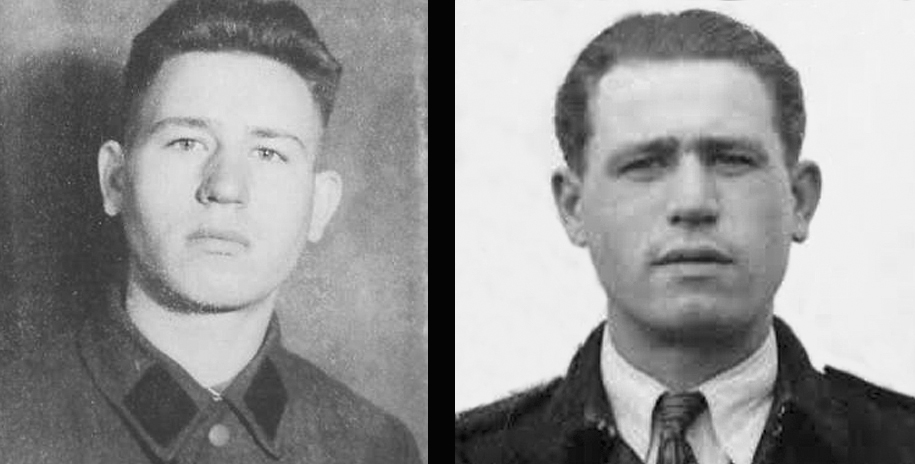
[Above: Jaroslaw, his amazing life had just begun.]
Jaroslaw: The division was reformed, and we had many new recruits from the countless refugees who were moving west. There was talk of forming female units as many came forward to volunteer, but the Germans would not allow women to fight, they deemed them too valuable and our priests said it was against the Holy Book to use them. One would think our morale would be very bad, but in fact so many coming to our side from all over the world, raised it. We had Turks, Armenians, Slovaks, Iranians, and men from other far regions seeking to join the fight against the scourge that was threatening the world. The Germans were hard-pressed to find regiments for these men to fight in, as they wanted to be with their own. I saw a Muslim division moving to the front. It was a sight to see all the turbans and other headgear worn. I even saw some Indian soldiers moving off to face the Western Allies.
It was an odd sight back then, and today the UK schools teach children that Germany was racist and discriminatory, that is why it had to be fought. Boy would those teachers be surprised to know the truth, the Waffen-SS was in fact the forerunner of NATO, and welcomed anyone who wanted to join the fight against world Bolshevism. I am dumbfounded by the myriad of lies created by the enemy to this effect. We ended up being sent to Slovakia to fight partisans who had launched a revolt. Many were angry at the masses of Polish and Ukrainian people who had fled and were settled in the area by the Germans. Slovaks did not like this and started attacking them without provocation. The Soviets infiltrated the area, and encouraged partisans to strike fear in the people, they did this by killing anyone who opposed them. A family who was working for the Germans to help the Poles was shot down to the person. The whole family.
We came to the area to quell the violence and find the guilty. What we stumbled into was an all-out front that the Soviets had organized. The Bolshevik partisans in this area formed loose units to fight us. We would hear planes at night that were dropping supplies to these groups. This area was hard to fight in, as it was hilly and woodsy, but we had great success largely due to the civilians helping us. Unfortunately, it made them targets of the spies who worked for the enemy and many paid a heavy price in the end.
These battles went on until the Soviets took the area. We moved into Austria around Graz, where we fought the Soviets until it was over. We held where other German units had already given up. For us it was not over until May 10, 1945. We lined up and surrendered to the Western Allies as a proud division who had done our duty. To the shame of the Allies, countless men, women and children were forced back to the Soviets. Anyone who had aided the Germans or any independence movement was executed or sent away to die.
Our religious leaders who had stayed with us protested all the way to the Vatican. Polish leaders also stepped in to help us. It worked and we were moved to a camp in Italy. Once the west started to see the true nature of Stalin, we were offered asylum in both the UK and Canada, I chose to come to the UK.
Do you have any regrets serving in the Waffen-SS?
Jaroslaw: In retrospect no, and I would do it again. We were a strong comradeship of men who rose up to defend our homes and Europe from a scourge not seen since Genghis Khan and the Huns. I am proud of my service and regret nothing; we fought a cruel enemy who has the luxury of being able to write the history of the war, so they can tell it the way they want people to believe it. We were not asphalt soldiers or soldiers of destruction; we fought as representatives of a new Europe bringing freedom and hope to God's people.
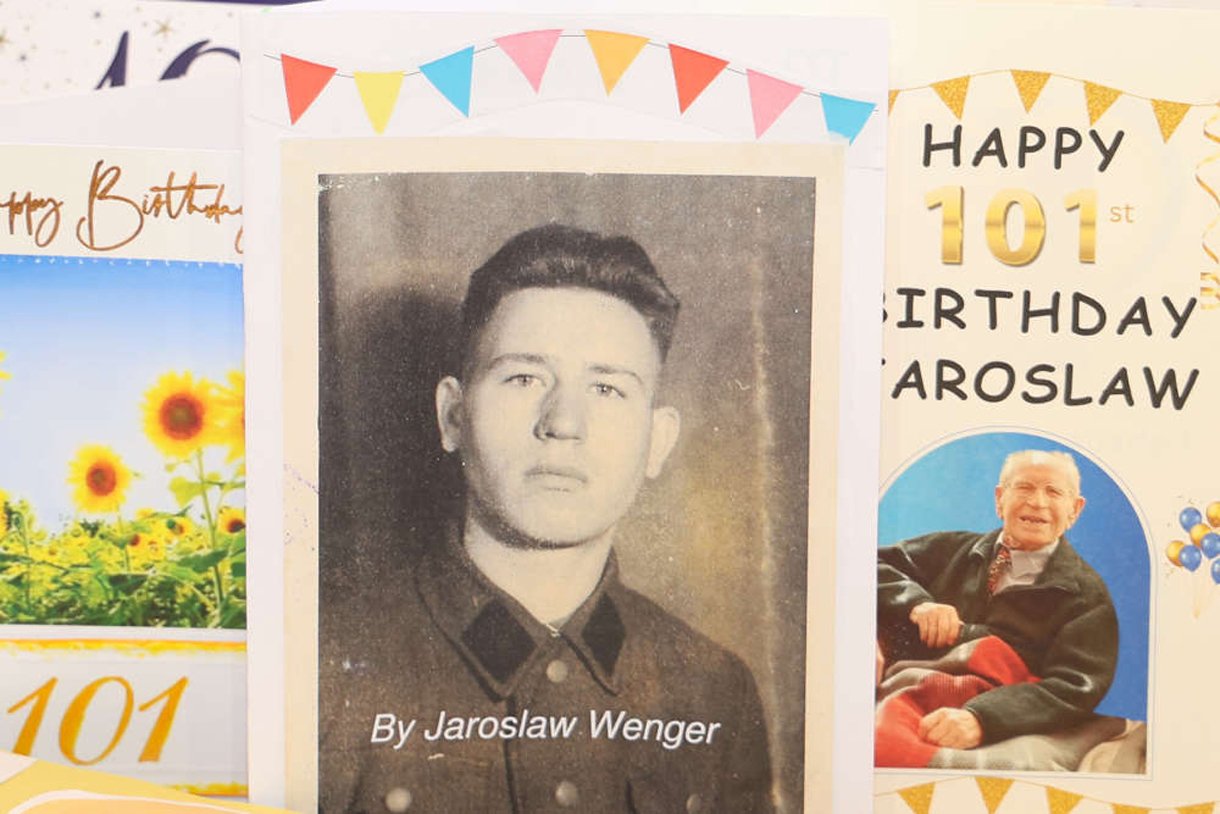
[Above: Jaroslaw celebrating his 101 birthday!]
Back to Interviews